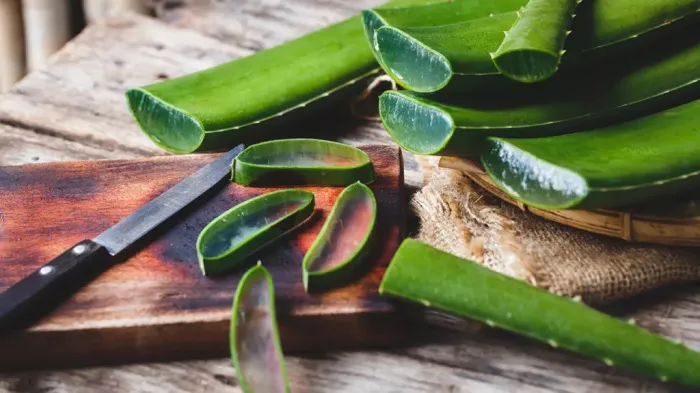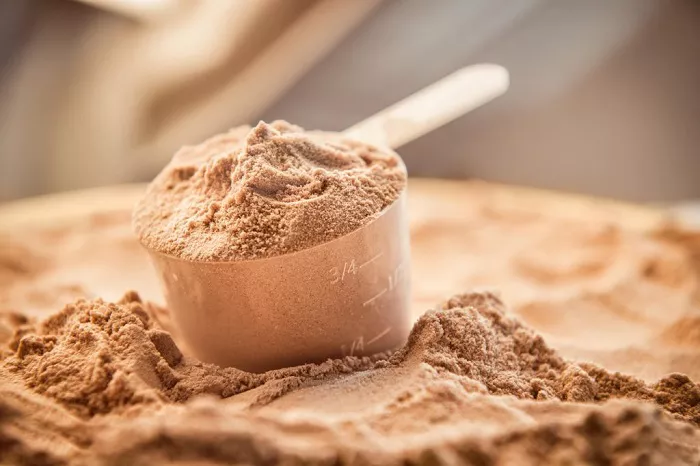Scars. They can be reminders of past injuries, surgeries, or skin conditions, and for many, they are a source of self-consciousness and discomfort. Fortunately, nature has provided us with a powerful ally in the quest for scar reduction and healing: the Aloe Vera plant. In this comprehensive article, we will delve into the intriguing world of Aloe Vera and its potential to address scars effectively. We will explore the science behind Aloe Vera’s scar-healing properties, its historical uses, and practical applications for scar management. By the end of this article, you’ll have a thorough understanding of whether Aloe Vera is indeed good for scars.
The Aloe Vera Plant: A Brief Introduction
Before we dive into the specifics of Aloe Vera’s efficacy in scar treatment, it’s essential to understand the plant itself. Aloe Vera is a succulent plant with long, spiky leaves that contain a gel-like substance. This gel has been used for centuries for its various medicinal and skincare benefits. While Aloe Vera has gained popularity for its soothing properties in sunburn relief, its potential for scar management is a topic that has piqued the interest of many.
The Science of Scarring: Understanding the Process
To comprehend how Aloe Vera may aid in scar reduction, we must first grasp the basics of scar formation. Scars result from the body’s natural healing response to injuries or wounds. When the skin is damaged, the body’s repair mechanisms kick into action. Collagen, a protein responsible for skin structure, is produced in excess during the healing process. This excess collagen can lead to the formation of scars.
Aloe Vera and Collagen Regulation: Breaking the Scar Cycle
Now, let’s delve into how Aloe Vera may disrupt the scar-forming process. One of the key components of Aloe Vera gel is a compound called glucomannan. Glucomannan has been shown to inhibit the overproduction of collagen during wound healing. By moderating collagen production, Aloe Vera may help prevent excessive scarring, leading to a smoother and less prominent scar appearance.
Additionally, Aloe Vera contains a plethora of vitamins, minerals, and amino acids that are essential for skin health. These nutrients can promote overall skin regeneration, aiding in the natural healing process. When scars are formed from wounds or surgeries, Aloe Vera’s rich nutrient profile can provide the skin with the building blocks it needs to repair itself effectively.
Aloe Vera’s Anti-Inflammatory Properties and Scar Management
Inflammation is another crucial factor in scar formation. Excessive inflammation can exacerbate the scarring process, leading to more significant and noticeable scars. Aloe Vera is known for its potent anti-inflammatory properties, which can help mitigate the inflammation associated with wound healing.
By reducing inflammation, Aloe Vera not only promotes more comfortable healing but also helps to minimize the risk of hypertrophic or keloid scars. These types of scars are raised and often more visible than typical scars, making them particularly troublesome for individuals seeking scar management solutions.
Historical Use of Aloe Vera for Scars
The use of Aloe Vera for scar treatment is not a recent discovery. Throughout history, various cultures have harnessed the healing properties of this remarkable plant. Ancient Egyptians referred to Aloe Vera as the “plant of immortality” and used it for a wide range of medicinal purposes, including scar treatment.
Similarly, traditional Chinese medicine and Ayurvedic medicine have incorporated Aloe Vera into their healing practices for centuries. These historical uses serve as a testament to the plant’s enduring reputation as a scar remedy.
Modern Research and Clinical Studies
While historical anecdotes are intriguing, it’s essential to examine Aloe Vera’s scar-healing potential through the lens of modern science. In recent years, numerous studies have explored the efficacy of Aloe Vera in scar management.
A 2016 study published in the journal “Pharmacognosy Reviews” reviewed the therapeutic properties of Aloe Vera and found that it exhibited promising results in reducing the size and appearance of scars. The study suggested that Aloe Vera’s anti-inflammatory and antioxidant properties played a significant role in scar improvement.
Another study, published in the “Journal of Dermatological Treatment” in 2018, conducted a randomized controlled trial to assess the effectiveness of an Aloe Vera gel formulation on surgical scars. The results indicated that the Aloe Vera gel group experienced more significant improvements in scar appearance compared to the control group.
These modern research findings align with the historical uses of Aloe Vera and provide substantial evidence of its potential as a scar management tool.
Using Aloe Vera for Scars: Practical Tips
Now that we’ve explored the science and history of Aloe Vera’s scar-healing properties let’s discuss how to harness its benefits in your scar management routine. Here are some practical tips on using Aloe Vera for scars:
Selecting the Right Aloe Vera Product: When choosing an Aloe Vera product for scar treatment, opt for high-quality, pure Aloe Vera gel or cream. Look for products with minimal additives or preservatives to ensure you’re getting the most benefits from the plant.
Patch Testing: Before applying Aloe Vera to a scar, perform a patch test on a small area of skin to ensure you do not have an adverse reaction to it. Aloe Vera is generally well-tolerated, but it’s always best to be cautious.
Consistent Application: Apply Aloe Vera gel or cream to your scar consistently. For best results, use it at least twice a day. Massage the product gently into the scar, allowing it to be absorbed by the skin.
Protect from Sun Exposure: Sun exposure can worsen the appearance of scars. Ensure that you protect your scar from the sun by using sunscreen or covering it with clothing when going outside.
Patience: Scar healing takes time, and results may vary from person to person. Be patient and continue the application of Aloe Vera consistently for several weeks or months to see noticeable improvements.
Consult a Healthcare Professional: If you have concerns about a severe scar or if your scar is the result of a medical procedure, consult a healthcare professional or dermatologist for personalized guidance and treatment options.
Conclusion
In the world of scar management, Aloe Vera stands out as a natural and effective option. Its ability to regulate collagen production, reduce inflammation, and provide essential nutrients for skin regeneration make it a compelling choice for those seeking to minimize the appearance of scars.
While Aloe Vera’s historical use for scars is rich and diverse, modern research has provided valuable insights into its mechanisms of action and confirmed its potential in scar reduction. When used consistently and correctly, Aloe Vera can be a valuable addition to your scar management routine.
Remember that individual results may vary, and for severe or persistent scars, it’s always advisable to seek professional guidance. With patience, diligence, and the power of Aloe Vera on your side, you can embark on a journey towards smoother, more confident skin, leaving those pesky scars behind.
[inline_related_posts title=”You Might Be Interested In” title_align=”left” style=”list” number=”6″ align=”none” ids=”2810,2803,2730″ by=”categories” orderby=”rand” order=”DESC” hide_thumb=”no” thumb_right=”no” views=”no” date=”yes” grid_columns=”2″ post_type=”” tax=””]


































